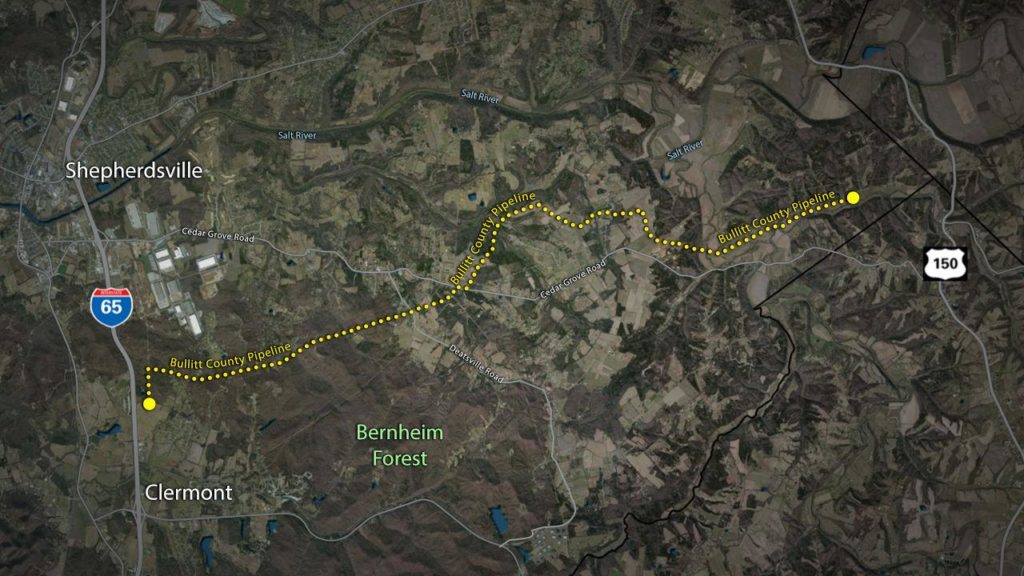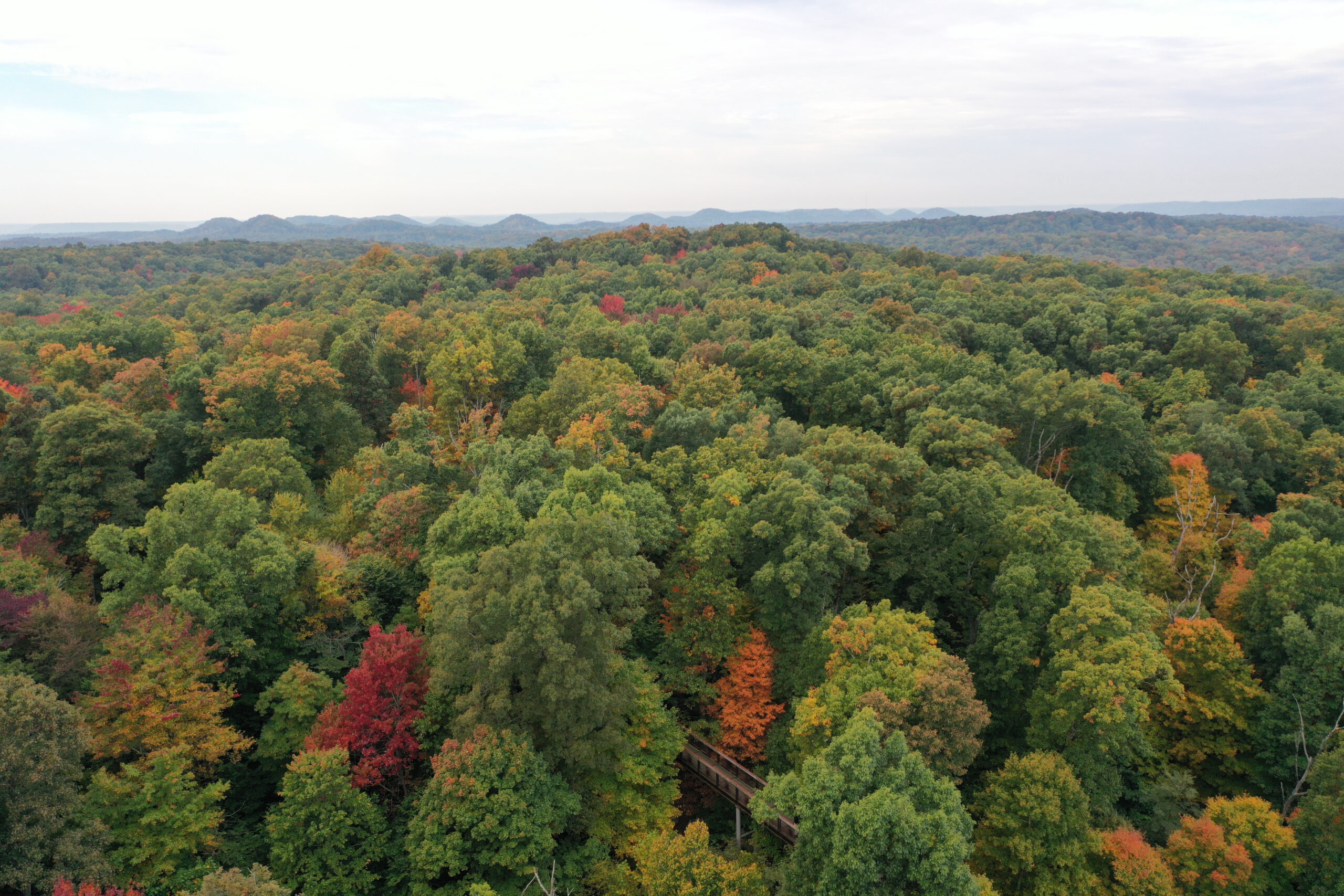Source: WDRB
By Marcus Green
September 24, 2019

Louisville, Ky. – Louisville Gas & Electric says Bernheim Forest’s complaint over a planned Bullitt County pipeline should be dismissed because the utility followed state rules in applying for the 12-mile line, including notice requirements.
The Louisville-based company also argues that Bernheim failed to lodge an appeal on time and hasn’t shown it was harmed by state regulators’ 2017 approval, but is instead “distracting with emotional appeals” that aren’t relevant.
LG&E’s filing with the Kentucky Public Service Commission last Thursday is the latest salvo in a complaint Bernheim brought in August over the natural gas transmission line, which would cross land the nature organization bought in 2018. Bernheim claims routing the line through that area threatens endangered bats and rare snails, as well as natural features that support those and other species.
The utility ramped up its public relations campaign for the pipeline on Tuesday, saying in a press release that more than 60 new homes and businesses in Bullitt County have been “denied natural gas service” because of delays to the project. It warned of interruptions in service if there’s an outage.
LG&E has acquired all but 11 parcels needed for the line that would run between south of Mount Washington and Interstate 65, south of Shepherdsville. It would create a backup supply of gas to 9,500 customers, LG&E claims, while also aiding future industrial users along Ky. 480 and Ky. 245 near I-65.
Natasha Collins, an LG&E spokeswoman, said several warehouses envisioned for Shepherdsville and a housing development near Mount Washington are among the projects that haven’t moved forward because there’s not enough existing pipeline capacity.
She said an unidentified economic development proposal that wanted natural gas would have created 140 jobs and $7 million in total investment.
“These are the types of things that the community is missing out on,” she said.
Bernheim and other residents who don’t want a high-pressure pipeline through their land have questioned how the path was chosen – LG&E rejected a consultant’s initial route — and criticized a process that let LG&E avoid public notice requirements that are common for other large projects.
In some cases, residents didn’t know about the line until state regulators approved it.
Bernheim has claimed LG&E failed to follow state law and regulations because it did not apply for a “certificate of public convenience and necessity” during its 2016-17 rate increase case. During that case, regulators decided to approve a certificate for the project after concluding that LG&E qualified for it.
In the complaint now before the commission, Bernheim is asking regulators to force LG&E to start over and apply for the certificate. Had the commission done that in the first place, Bernheim attorneys argue, it “would have allowed for public notice and an opportunity to be heard regarding the necessity for and routing of such a pipeline.”
Among a slew of arguments in its recent filing, LG&E says state regulators ought to recognize Bernheim’s complaint “for what it is—a request for retroactive relief in a case it was not a part of.” LG&E cites a 2014 case dealing with utility poles to show that the commission has rejected similar complaints in the past.
LG&E argues that no Kentucky laws or regulations require public notice to build a natural gas pipeline. And even there was a notice requirement, the utility says, Bernheim wouldn’t have been notified because it wasn’t a property owner.
“To allow such a complaint to proceed would undermine that finality of all the Commission’s orders and open the door to endless future challenges of any past order by any person—years later—opposing the order.”

